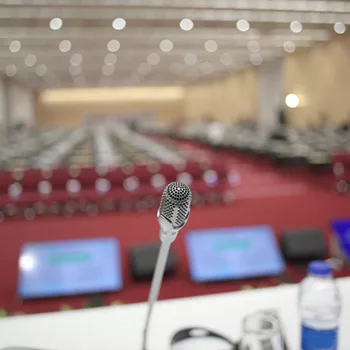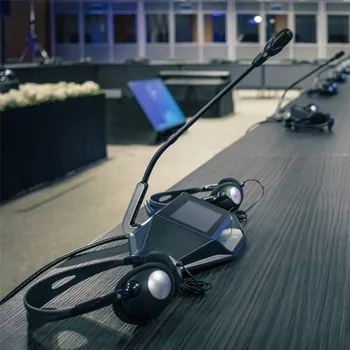What is simultaneous interpreting?
Simultaneous interpreting is a fascinating and demanding form of translation that is used in situations where an immediate and almost simultaneous translation of spoken language is required. This profession plays a crucial role in international conferences, business meetings, diplomatic negotiations and many other multilingual events. Here is a more detailed explanation of what simultaneous interpreting is exactly: Definition: In simultaneous interpreting, an interpreter translates the spoken word orally and almost simultaneously from a source language into a target language. Unlike consecutive interpreting, where the speaker pauses to give the interpreter time to translate, simultaneous interpreting takes place in real time, without any interruptions in the flow of speech. Procedure: Simultaneous interpreters usually work in soundproof booths from which they can hear the speakers through headphones. They use highly specialized equipment that enables them to hear what is being said clearly and distinctly. As they listen, they translate what they hear into the target language in real time and speak it via a microphone. The audience receives the translation via headphones. Requirements: Simultaneous interpreting requires exceptional linguistic competence, as the interpreters usually have to speak several languages at native speaker level. In addition, they must have excellent concentration, quick thinking skills and the ability to multitask as they listen, interpret and speak at the same time. Stress resistance is also essential, as they often work under enormous pressure. Fields of application: Simultaneous interpreting is used in a variety of contexts, including international conferences, negotiations, arbitration proceedings, televised broadcasts of major events, and even in medical emergencies when language barriers need to be overcome. Importance: Simultaneous interpreters are the invisible bridge builders between different cultures and languages. They enable smooth communication in a globalized world and help to avoid misunderstandings and promote cooperation at an international level. Overall, simultaneous interpreting is an impressive skill that requires a rare combination of linguistic talent, intellect and quick comprehension. These professionals play a crucial role in promoting intercultural dialog and global cooperation.








